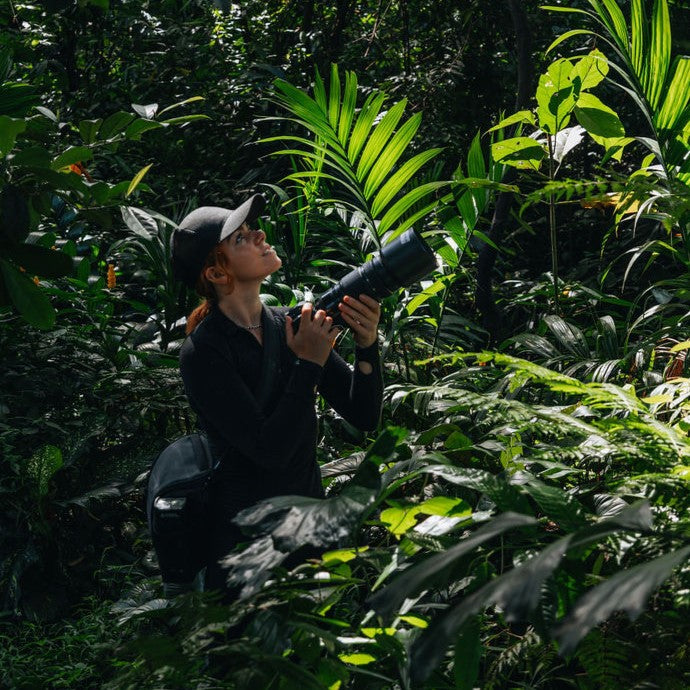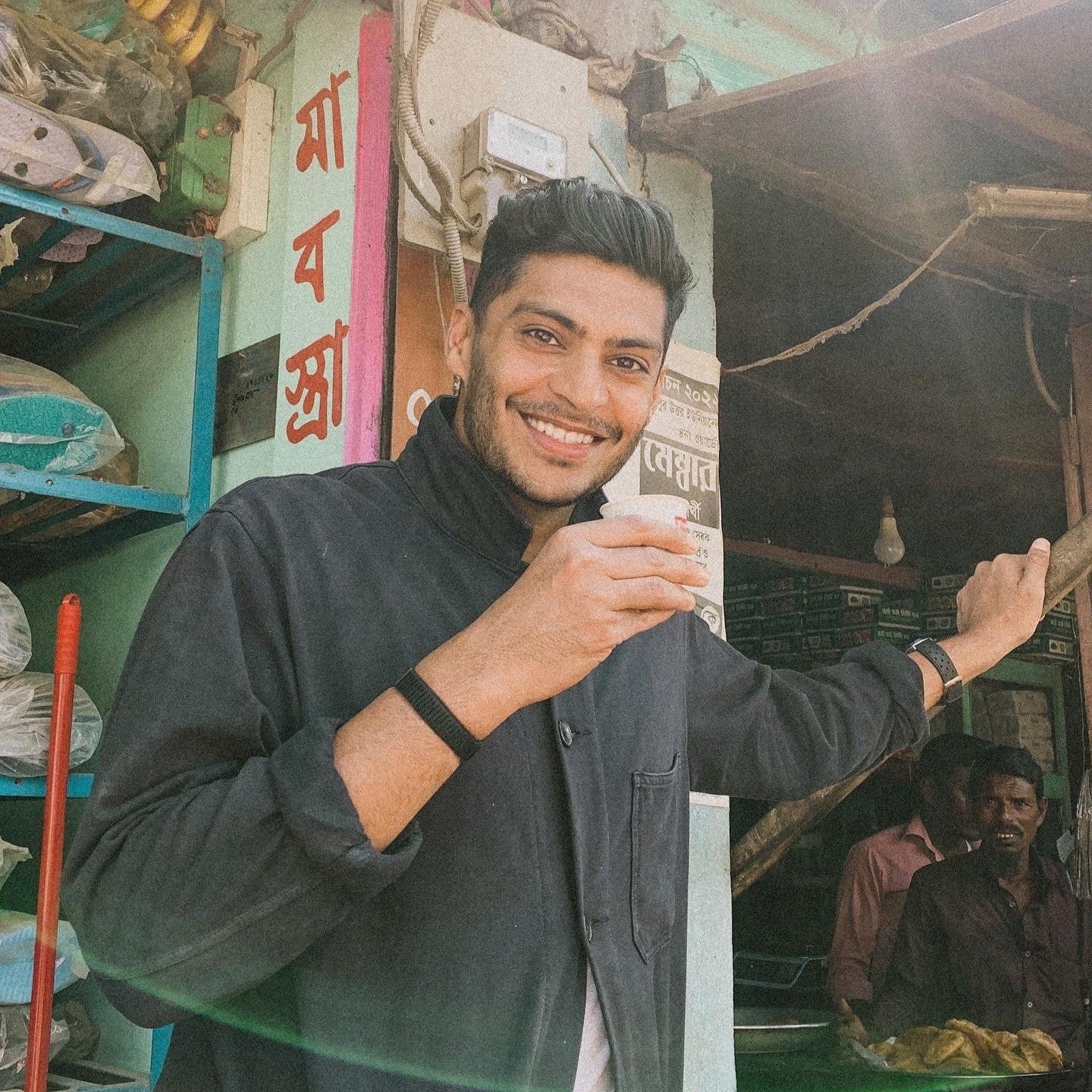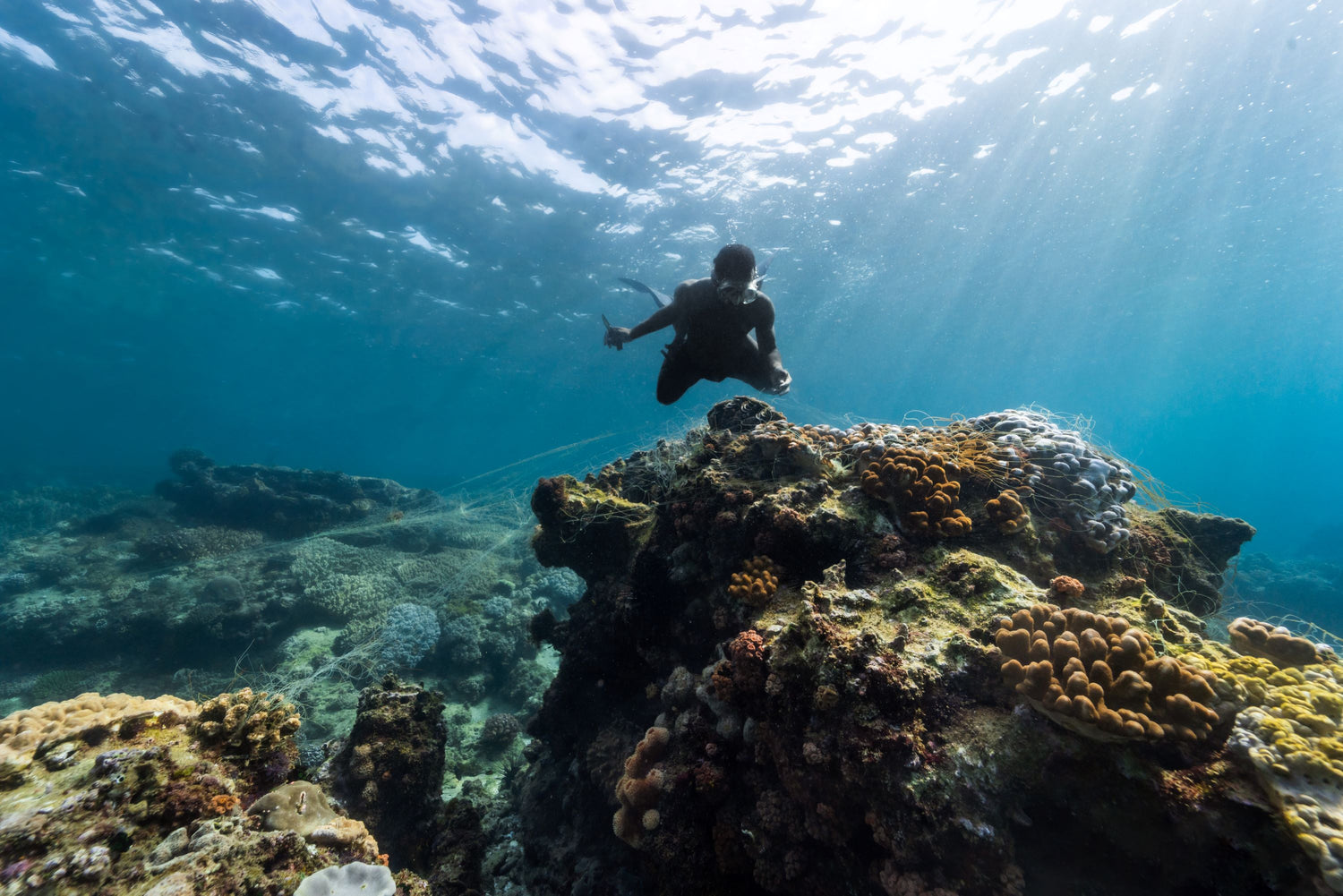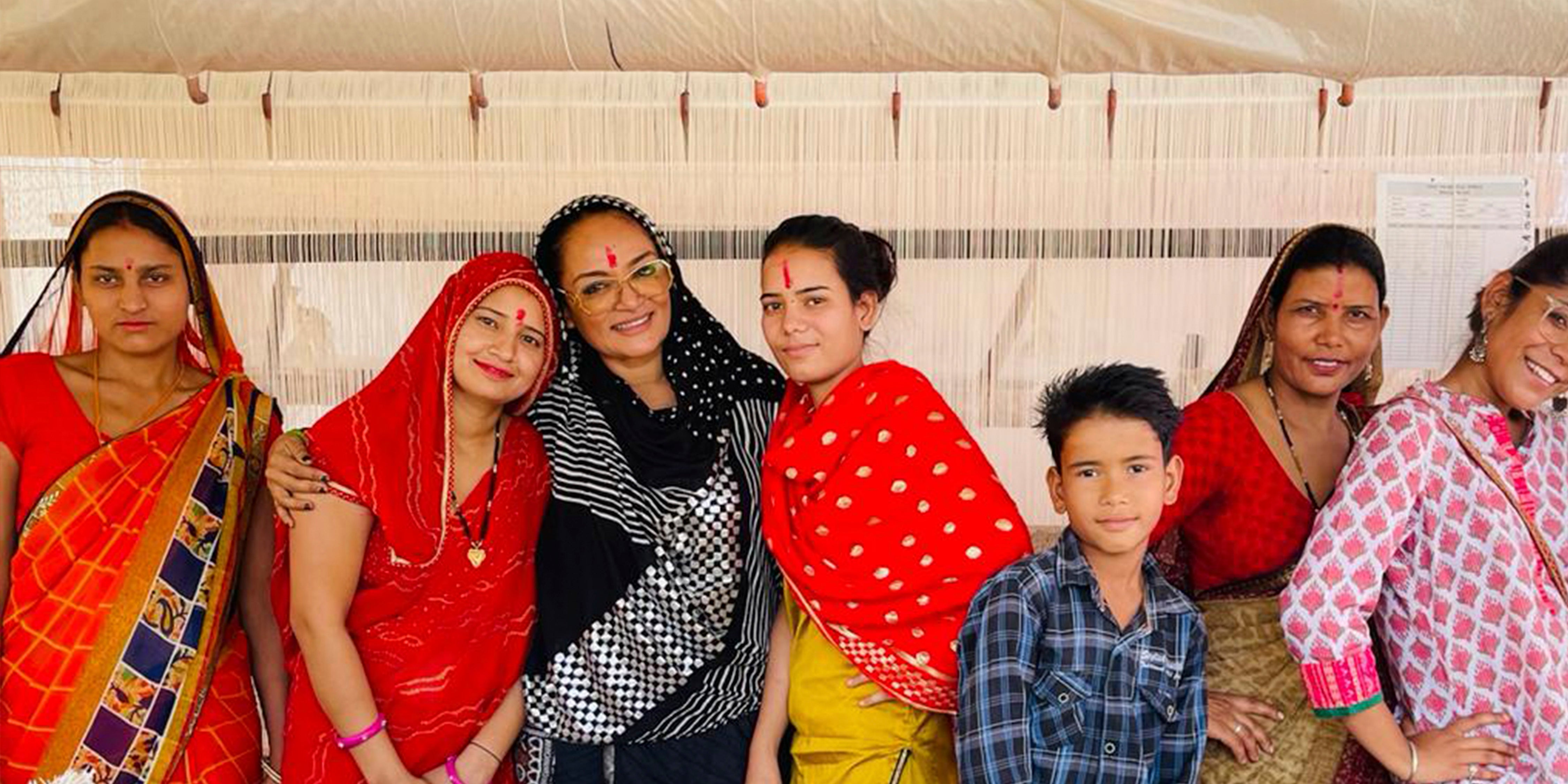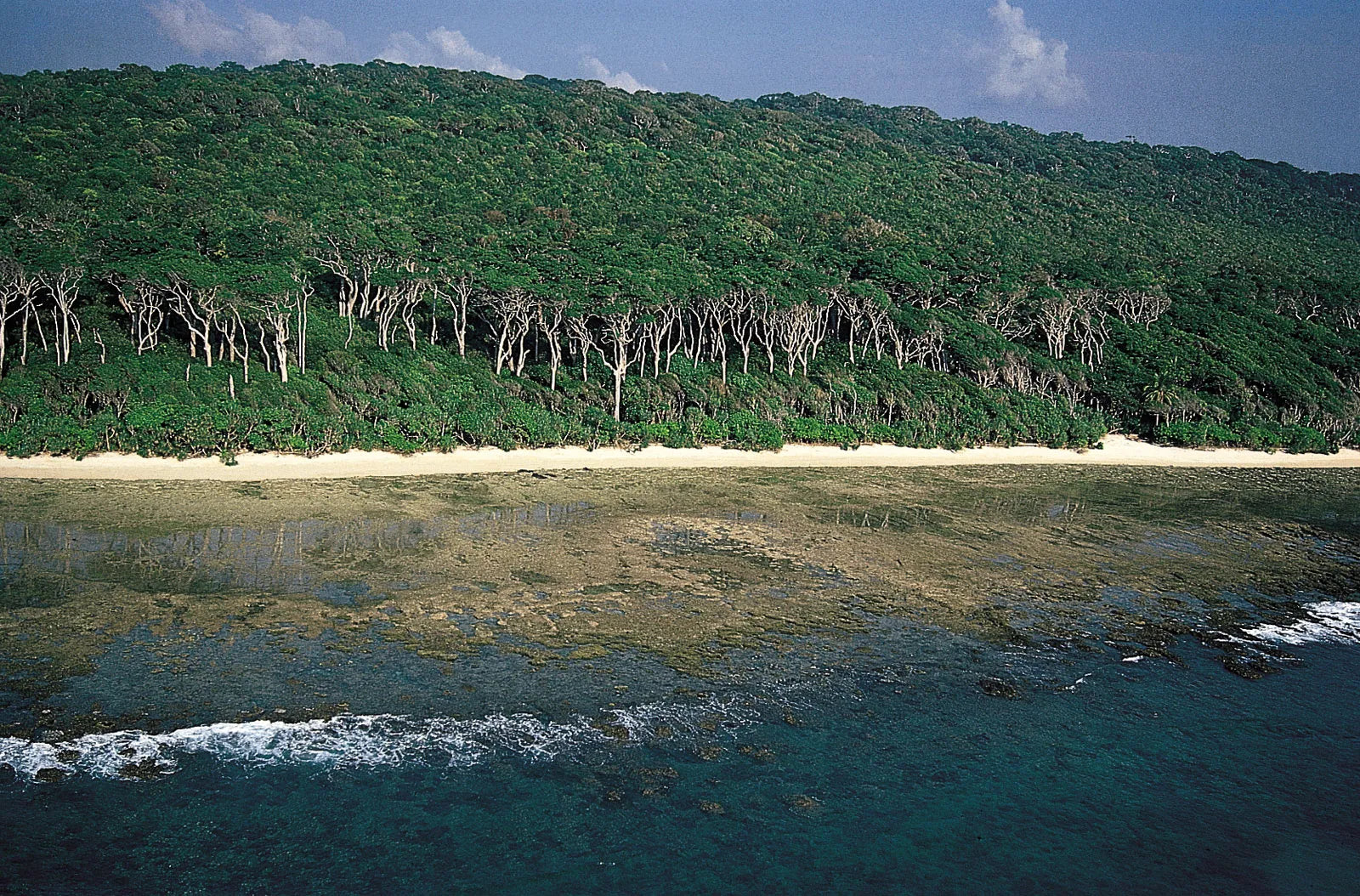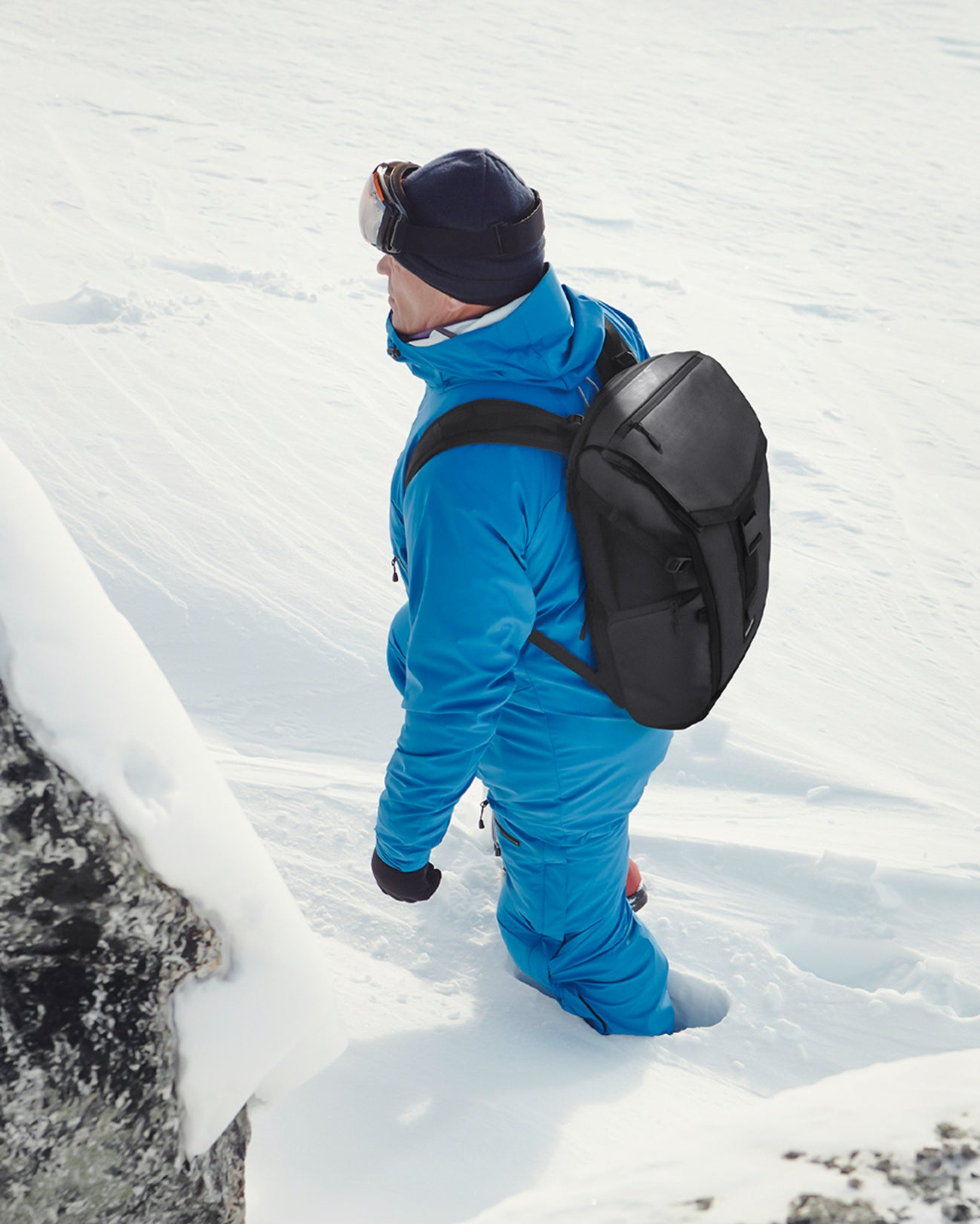Kaush Subramaniam is a British wildlife conservation biologist, photographer & filmmaker. His research into human-wildlife interactions and conflicts has taken him far and wide, from studying elephant populations in the Savannah of South Africa to monitoring whale shark tourism in the Maldives.
With an MSc in Wildlife Conservation and extensive experience in the field, Kaush combines his passion for documenting the natural world with his research to help bring attention and find resolutions to the issues facing wildlife across the world. Since completing his master's degree, Kaush has gone on to to be nominated for a number of photographic awards and to work for the BBC Natural History Unit on landmark productions.
SWIMMING IN MOZAMBIQUE
Written by Kaush Subramaniam
Imagine growing up with the vast ocean at your doorstep, and your community’s entire livelihood being dependant upon it, only to be told your whole life that it is an entity to be feared and never entered.

This is the story for the majority of the youth that live in Jangamo Bay, Mozambique. Fishing is the main source of income for the community here, yet 95% of the population is unable to swim. But the necessity to venture into the ocean to feed one’s family leads to the constant threat of drowning. Mothers losing husbands and children to the sea is a tale as old as time in this part of the world.
But how can someone who grows up in a coastal village not know how to swim you might ask? The answer is isn’t a straight forward one. The majority of the area does not have running water or electricity, let alone the resources for community swimming pools or swimming lessons. What swimming pools there are in the area are owned by wealthy ex-pats that who aren’t so keen on the idea of locals coming and using their facilities. A lack of infrastructure and opportunities has lead to generation after generation going without learning a crucial life skill.
There is however a new generation from Jangamo that are bucking the trend, and helping to turn the tide when it comes to ocean literacy in the area. Bento Nhamussua is one of a number of youth from the area that are trying to put an end to drownings in the area. Unable to swim at the age of 16, now 19, not only is Bento proficient at swimming in the ocean, he is now a certified swimming instructor and helps to teach the next generation how to be safe in the water.

Working for marine conservation NGO Love The Oceans, Bento now helps conduct research on the coral reefs in the area, as well as teaching the older generation of fishermen ways of being more sustainable in their fishing methods. A passionate diver, Bento is currently completing his PADI rescue diver qualification - amazing given he didn't know how to swim until just a few years ago.
Bento is aiming to work towards a degree in marine biology at Eduardo Mondlane University in Maputo, and hopes to inspire the next generation of Mozambicans to love and protect the oceans just as he does.

I was fortunate enough to be able to shadow Bento for a month last year as he gained his swimming instructor certification and conducted research on the local coral reefs. My film “Peixinho” (little fish), documenting Bento’s story is set to be released at the end of 2023.
Only 9% of all plastic produced is ever recycled, over 12 million tonnes of this discarded plastic finds its way into the ocean every single year. And by 2050 it is expected that there will be more plastic by weight in our oceans than fish. It is vital to reconnect our youth with the importance of respecting and caring for our oceans.
Discover how our products are built using pioneering processes which help to keep microplastics from oceans and capture CO2 from the air.



